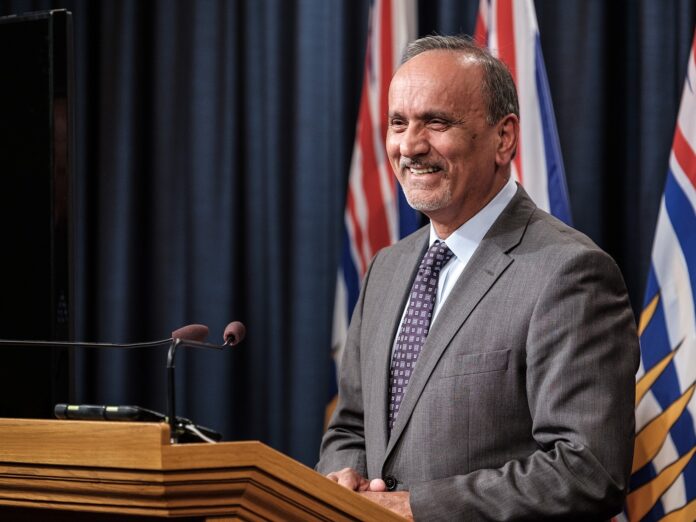FEEDBACK gathered through the Province’s public engagement about app-based ride-hailing and food-delivery work has been compiled into a “what we heard” report, the province announced on Tuesday.
The public engagement began in fall 2022 and included an online survey, as well as meetings and roundtable sessions with workers, platform companies, labour and business organizations, academics and researchers. The workers consulted included those who rely on ride-hailing or food-delivery jobs as their primary source of income, and those who use it to supplement their income.
“We recognize that British Columbians have embraced ride-hail and food-delivery services, but most people involved in the sector agree there is room for improvement,” said Harry Bains, Minister of Labour. “We are working together with workers, with platform companies and with others on solutions to improve working conditions and protections.”
A number of themes emerged from the engagement. Overall, workers value the flexibility of this work, but they have concerns about low and unpredictable earnings, the costs of fuel and vehicle maintenance, the transparency of pay for assignments, and “deactivations” from a platform, i.e. termination. Most platform companies indicated their support for improving working conditions, including guaranteed minimum earnings, as long as flexibility for workers is maintained.
“Through our engagement, we learned there can be serious vulnerabilities for some app-based ride-hail and food-delivery workers,” said Janet Routledge, Parliamentary Secretary for Labour. “Gig workers, like everyone who works in our province, deserve to be treated fairly. That is the foundation of our effort to make work more reliable and less precarious.”
In recent years there has been significant growth of the gig economy where income is earned outside of a traditional employment relationship.
Kuljeet Singh, Uber driver in the Lower Mainland, said: “I love being a ride-hail driver, but I work long hours and have to deal with the wear and tear on my car. I have family members to care for and I am not being compensated fairly for the time and effort I invest in my job. I hope the conditions for drivers like myself improve soon.”
Jiawei Zhang, CEO, KABU-Ride Inc., said: “When we started this ride-hailing business, our goal was to build a platform that helps take the transportation industry to the next level. Providing our driving partners a way to earn a living wage by charging the lowest commission rates in the industry is our way of demonstrating the respect we have for them. Our company is looking forward to continuing to work with the government to ensure a level playing field in the industry that puts the health, safety and well being of our driving partners at the forefront, right alongside our customers. That’s our competitive advantage in the ride-hailing space.”
Quick Facts:
* The Ministry of Labour invited people in British Columbia to share their thoughts on app-based ride-hailing and food-delivery work via an online survey from November 23, 2022, until January 6, 2023.
* 1,470 people completed the survey.
* More than 1,000 of the survey respondents were app-based ride-hailing or food-delivery workers.
* Roundtable discussions were held with workers in Abbotsford, Kamloops, Kelowna, Victoria, Nanaimo, Parksville, Prince George, Surrey, Richmond and Vancouver.
Learn More:
Read more about the benefits and challenges of app-based ride-hail and food-delivery work in the “what we heard” report posted here:
https://engage.gov.bc.ca/











